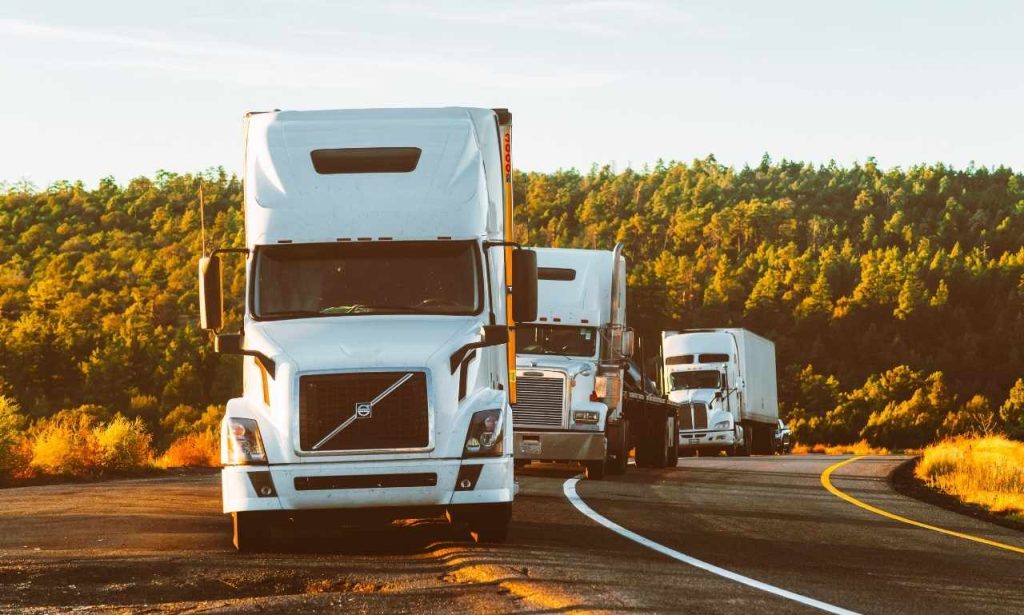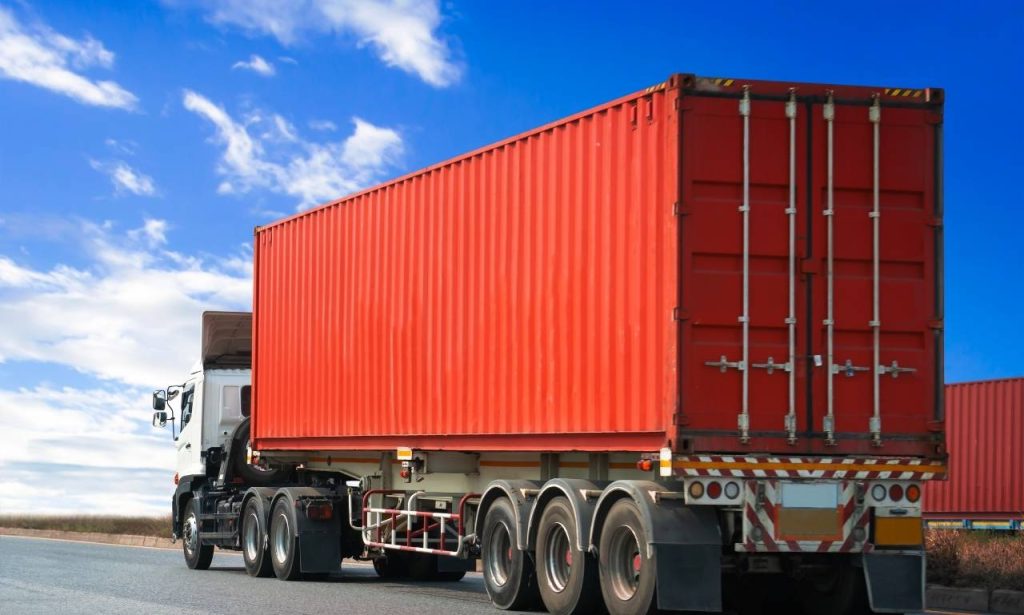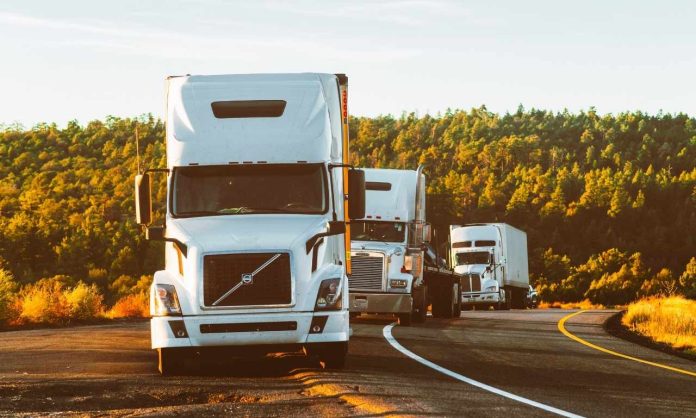Trailer Interchange Coverage — sounds a bit niche, right? But if you’re part of the trucking or freight industry, it’s essential. It is a specific type of insurance that keeps your operation protected, covering any trailers you might pull that don’t belong to you. As the logistics industry grows, understanding and utilizing this coverage has become a cornerstone for ensuring smooth and risk-free transport.
Why Is Trailer Interchange Coverage Necessary?
Legal Liability

- Imagine hauling someone else’s trailer. What if there’s accidental damage during your route? Trailer interchange coverage handles the liability for damage, providing legal liability coverage that ensures you aren’t left vulnerable. Without it, you could find yourself with hefty repair bills and disputes over responsibilities. This is especially important under a trailer interchange agreement – those formal agreements you make to use another company’s trailer in exchange for insurance coverage.
Financial Protection
- Freight companies and trucking businesses cannot ignore the financial risks associated with accidental damage to trailers they do not own. The coverage helps mitigate unexpected repair costs. Whether it’s natural events, collision damage, or animal collisions, this insurance has you covered, ensuring you’re not paying out-of-pocket for repairs.
Compliance with Trailer Interchange Agreements
- To legally interchange trailers, an you need an interchange agreement. These agreements define how and when trailers are transferred between different trucking companies. The insurance ensures compliance and provides coverage limits that meet the requirements set out in these agreements.
Key Features of Trailer Interchange Coverage
Covers Non-Owned Trailers
- Whether you’re a single trucker or managing a fleet of trucks, this coverage applies specifically to trailers that are owned by another company. You have custody of them, and the type of insurance covers accidental damage, theft, or loss that may occur while they’re in your possession.
Physical Damage Coverage
- The physical damage protection is the key feature here. It includes accidental damage, vandalism, fire, and other unforeseen incidents. It helps protect the value of the trailer, ensuring that in the event of a loss, repairs are covered.
Customizable Coverage Limits
- The trailer interchange limit is the maximum payout for damage to a non-owned trailer. These limits can be adjusted according to specific agreements or based on what each motor carrier needs. Higher coverage limits may lead to increased premiums, but they’re critical in covering potential extensive damages.
Definition of Trailer Interchange Coverage
It is a specialized insurance designed to protect trucking companies and motor carriers when they’re transporting trailers they don’t own. It specifically covers property damage for trailers under a trailer interchange agreement, which occurs when trucking companies borrow trailers from each other for different hauls.
- Who Needs It? Any company or independent truck driver is responsible for non-owned trailers in transit.
- What Does It Cover? It covers physical damage — think accidents, weather damage, fire, and theft. It’s meant to offer protection for trailers used under a formal interchange arrangement.
Scenarios Requiring Trailer Interchange Coverage
- Trailer Under Lease: Let’s say you are temporarily using a trailer from another company for a specific haul. During the transport, the trailer is damaged in an accident. With trailer interchange coverage, you’re protected from the liability for repairs.
- Accidents While in Possession: You’re transporting a trailer full of goods, and a careless driver rear-ends you, causing damage. The trailer isn’t yours. Without trailer interchange insurance, you might need to pay for repairs out of your own pocket.
- Storm Damage: You’re parked at a rest stop overnight, and a storm causes a tree to fall onto the trailer. Trailer interchange insurance coverage kicks in here, providing coverage that a standard commercial truck insurance may not.
Differences Between Trailer Interchange Coverage and Non-Owned Trailer Physical Damage Insurance

Trailer Interchange Coverage vs. Non-Owned Trailer Coverage
The trucking industry is full of unique insurance terms, so it’s easy to get confused. Trailer interchange coverage and non-owned trailer physical damage insurance both cover non-owned trailers, but here’s the key difference:
- It is specific to trailers you have under an actual trailer interchange agreement. It’s part of a formalized transfer of possession, usually with coverage limits spelled out in the agreement.
- Non-Owned Trailer Physical Damage Insurance generally covers trailers you’re hauling but without a formal interchange contract. It’s often added to commercial auto insurance policies as additional coverage.
Ownership and Agreement
- Trailer Interchange Coverage: Works under formal agreements, where liability is clearly transferred.
- Non-Owned Trailer Coverage: More flexible, but not bound to a legal interchange agreement. Useful if trailers are used without established contracts.
Cost Implications of Trailer Interchange Coverage
Factors Influencing the Cost
Several factors influence the cost of trailer interchange insurance. From the type of freight being hauled to the driver’s record, here’s what impacts the final cost:
- Coverage Limits: Higher coverage limits mean better protection but higher premiums.
- Driver Experience: A driving record with fewer accidents will typically lead to lower insurance costs.
- Trailer Value: If you’re hauling high-value trailers, you may need a higher limit for trailer interchange.
- Risk Factors: Elements like routes driven, distance covered, and time of coverage also play roles in determining the premiums.
How It Compares to Standard Commercial Insurance
- Commercial Truck Insurance: Often focuses on liability and physical damage for your own vehicle.
- Trailer Interchange Insurance: Provides a separate insurance coverage specifically for non-owned trailers that may not be covered under standard policies.
Limitations of Trailer Interchange Coverage
Exclusions and Restrictions
- Common Exclusions: There are certain common exclusions in trailer interchange insurance policies, such as wear and tear, intentional damage, and mechanical failures. Make sure to read the policy carefully.
- Coverage for Cargo: This coverage does not typically include cargo insurance – that’s a separate insurance product altogether. While the trailer itself is covered, the contents might need cargo coverage.
Limited to Interchange Agreements
It’s important to note that this coverage only applies to trailers under a formal trailer interchange agreement. If you use trailers outside such agreements, you’ll need non-owned trailer coverage instead.
When to Purchase Trailer Interchange Coverage
Determining the Need
- Freight Brokers and Shipping Companies: If you often use trailers for transport that aren’t owned by your business, you should consider trailer interchange coverage.
- Logistics Network with Multiple Partners: Businesses participating in complex logistical networks benefit from trailer interchange coverage to reduce the risks associated with shared trailer usage.
- Agreements with Other Trucking Companies: If you have agreements with other companies to interchange trailers, this coverage is essential to comply with those contracts and protect yourself financially.
Key Considerations
- Frequency of Trailer Interchange: If you frequently enter into trailer interchange agreements, having this insurance is critical.
- Financial Risk: Evaluate your financial exposure if something happens to a trailer that you’re hauling but do not own. Trailer interchange coverage can save you from catastrophic costs in the event of damage.
Finding the Right Insurer for Trailer Interchange Coverage
Key Qualities of a Reliable Insurer
- Industry Expertise: Look for an insurance company with specific experience in the trucking industry. Insurers who know the specifics of trailer interchange insurance will help tailor a policy to your needs.
- Flexible Coverage Limits: A good insurer will provide customizable coverage limits that align with your trailer interchange agreement.
- Exceptional Customer Service: You want an insurer with a fastest claim settlement policy to keep your operation running smoothly in case of an incident.
Popular Providers
- CNS Insurance: Provides trailer interchange insurance policies with customizable coverage limits.
- National Independent Truckers Insurance Company: Specializes in coverage for independent truck drivers, including trailer interchange coverage.
- Commercial Truck Insurance Specialists: Offers comprehensive commercial trucking insurance options, including trailer interchange.
Understanding Trailer Interchange Agreements
What is a Trailer Interchange Agreement?

A trailer interchange agreement is a formal contract between trucking companies or motor carriers that allows the exchange and shared use of trailers for specific periods or hauls. This agreement often involves transferring liability and determining who’s responsible for the trailer at any given point.
- Agreement Details: It defines responsibilities like insurance coverage, liability, and maintenance for repairs.
- Liability Protection: The agreement stipulates that the driver or company in possession of the trailer is responsible for its condition until it’s returned. Thus, having trailer interchange insurance becomes a necessity.
Importance of Compliance with Contractual Obligations
Non-compliance with a trailer interchange agreement can lead to legal disputes, fines, and financial liabilities. Ensuring that your insurance meets the requirements of these agreements is crucial for avoiding any potential conflicts.
Conclusion
What is trailer interchange coverage? Trailer interchange coverage is more than just a formality; it’s essential to protect against the risks associated with hauling trailers you don’t own. Whether you’re a motor carrier involved in a trailer interchange agreement or a trucking company that frequently hauls non-owned trailers, having the right insurance in place will protect you from financial risks, legal liability, and potential disputes.
Also Read: What Do Lenders Require for Liability Insurance
FAQs
Trailer interchange coverage is an insurance that provides protection for trailers you don’t own but are using under a formal interchange agreement. Any trucking company or driver who hauls trailers under such agreements needs it.
While it’s not legally required, many trailer interchange agreements require this insurance as part of their liability terms, making it practically mandatory.
It covers accidental damage, fire, theft, and vandalism for non-owned trailers used under a trailer interchange agreement.
Trailer interchange coverage applies specifically to trailers used under formal agreements, while non-owned trailer physical damage insurance applies to trailers you use without an agreement.
